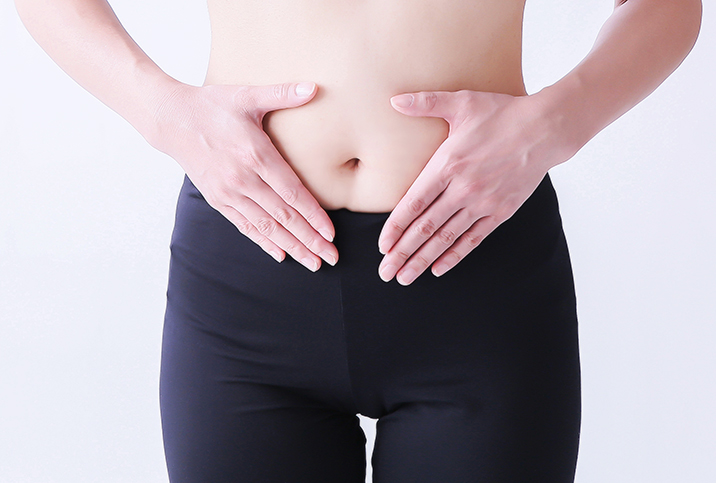Restoring Your Pelvic Floor After Pregnancy

Giving birth is nothing short of a miracle, but it can wreak havoc on women's bodies, particularly the pelvic floor. Some common complaints are urinary incontinence, painful sex and pelvic prolapse. It is not a topic most women discuss openly as it can feel embarrassing, and the stigma, unfortunately, remains. It's just what happens after delivering a baby.
The good news is that even though these ailments are common after delivery, women do not have to live with them forever. The pelvic floor is a muscle and therefore can be strengthened and repaired. During pregnancy, supportive pelvic muscles and tissues weaken and nerve damage may occur. This affects the pelvic organs, uterus, bladder and rectum, which can press into or out of the vagina. Whether immediately after delivery or years down the line, the pelvic floor can be restored and revitalized.
Let's go over a few bodily issues you may experience after pregnancy and how to address them by restoring your pelvic floor.
Urinary incontinence
More than one-third of women experience urinary leakage after childbirth when coughing, laughing or exercising. This is caused by the weakened muscles around the bladder and the uterus. The uterus sits directly above the bladder, which can put pressure on it and make it difficult to control. It typically takes three to six months to regain control, but some women experience this much longer. Though it happens more often to women who have given birth vaginally, those who had C-sections are not exempt from this annoyance.
To help regain control of your bladder you can do Kegel exercises to strengthen the pelvic floor. And bonus, a well-toned pelvic floor can also increase the pleasure of sex. Other ways to help stop the unwanted trickle of urine is to lose weight, stay hydrated and give up caffeine, which causes the bladder to contract more than necessary.
Painful sex
Dryness, caused by hormones and oftentimes breastfeeding, can contribute to pain during sex. An over-the-counter lubricant can help with this, but if the pain continues, it could be something more severe.
Vaginal birth can cause tearing and episiotomies which can lead to tightness from scar tissue. Scarring from a cesarean section can also feel tight and uncomfortable. The tightness from either type of delivery can make penetration painful. Sex may be painful the first time after delivery of your baby, but should the pain persist, pelvic floor therapy may be needed.
Your pelvic floor is responsible for sexual arousal and lubrication, so a pelvic floor therapist may be a good option to help alleviate pain during sex. A pelvic floor therapist will teach you how to strengthen your pelvic floor muscles without over-tightening them. Through breathing exercises, soft tissue techniques and pressure-point release treatments, sex will be enjoyable again. Most women see improvement within two to three months.
It is imperative to speak to your partner about your sexual discomfort. Giving birth for the first time or adding to your brood is stressful enough on both parents. Throw in lack of sex because of pain or exhaustion, and tension is inevitable. Communication about how you feel is an important step to recovery and experiencing the pleasures of sex once again.
Pelvic prolapse
Prolapse is one of the more severe postpartum effects and can emerge years after giving birth. Prolapse can occur because of a traumatic birth, multiple births or the birthing of a large child. It usually happens post-menopause when the pelvic organs are not properly supported. They push down into the vagina causing a heavy sensation or sometimes a bulge in the vagina.
Some prolapse is mild and may not need medical treatment. Diet and nutrition, refraining from lifting heavy objects and Kegels may be all that is needed to treat a mild case. Other times, pain and discomfort will require medical treatment such as a pessary or surgery.
Prolapse can be prevented by living a healthy lifestyle, maintaining your weight and getting enough fiber.
Don't let postpartum take control
You are considered postpartum for the rest of your life after giving birth, but that should not define your body. You don't have to live with pain, discomfort and leakage that is treatable and preventable.


















